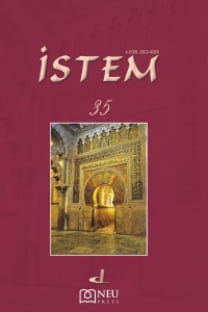MEKKE'DE İSLAMİYET'İN YAYILMASINA AKRABALIK AÇISINDAN BİR BAKIŞ
An Approach to the Spread of Islam in Mecca in Terms of Relationship
I am of the opinion that defining the negative or positive effects of relationship on the spread of Islam in Mecca would contribute to a better understanding of the events of Muhammad’s era. As known, Muhammed belongs to Hashimi clan of the Quraysh tribe. Lots of people from families belonging to this tribe and being relatives of Muhammad chose Islam at the Meccan period. However, since there are people who, although members of the same families, did not convert to Islam; thinking the relationship the only reason for accepting Islam would hold wrong. In fact, among the ones who did not believe in Islam but are relatives of Muhammad, there are those who continuously supported Muhammad. The best remembered example is Abu Talib, uncle of Muhammad. The social boycott emposed on the Muslims in Mecca included not only Hashimites but at the same time al-Muttalib family too, except Abu Lahab. In lifting the boycott the clear role of the nonMuslim relatives of Hatica is understood from the historical documents. What is more; there appear to be those who accepted Islam but are not the relatives of Muhammad. So, the reasons for people to choose Islam may be greatly differ. In conclusion, it can be said that relationship is not the single but one of the factors among others in the spread of Islam at Mecca.
- ISSN: 1304-0618
- Yayın Aralığı: Yılda 2 Sayı
- Başlangıç: 2003
- Yayıncı: N.E.Ü.İlahiyat Fakültesi İslam Tarihi ve Sanatları Bölümü
Sayıdaki Diğer Makaleler
İSLÂM TOPLUMUNDA GAYRİMÜSLİM AZINLIKLAR
HZ.AİŞE’NİN EVLİLİK YAŞI ETRAFINDAKİ TARTIŞMALAR
HİCRETLE İLGİLİ ŞİİRLER VE TAHLİLLERİ
YEDİ KASİDE Muallakât'ın Derlenmesi Üzerine Bazı Mülahazalar
PEYGAMBERİMİZİN RİSÂLET ÖNCESİ GEÇİM DURUMU
“OSMANLI DÖNEMİNDE ÇORUM” SEMPOZYUMUNDAN İZLENİMLER
